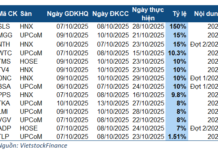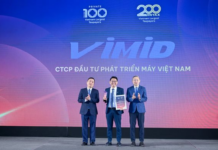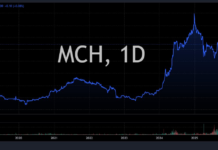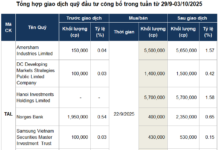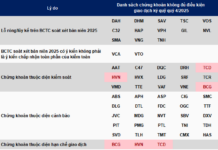Formation of 116 Companies in a Matter of Months
In recent times, tax authorities in Ho Chi Minh City discovered that an individual had formed an astonishing 116 companies within a short span of time, all registered with foreign names. The highest concentration of these companies was in Tan Binh district, with 22 enterprises, followed by Tan Phu district with 15.
Prior to this revelation, the individual in question, along with several accomplices, had been subject to criminal investigation by the Ho Chi Minh City Police Office for alleged involvement in money laundering and illegal cross-border currency transportation.
Mr. Nguyen Tien Dung, Deputy Director of the Ho Chi Minh City Tax Department, shed light on the issue, attributing it to the current lenient regulations governing company formation. He emphasized that such loopholes have been exploited by certain individuals to establish a multitude of businesses for illicit purposes, such as invoice trading and VAT refund fraud.
In response to this challenge, the tax authorities now require newly formed enterprises to physically present themselves for citizen identification verification before they can utilize electronic invoices. This serves a dual purpose: disseminating tax-related information and policies, and more crucially, identifying and monitoring these businesses, especially the smaller ones. Mr. Dung further revealed that the tax department is actively scrutinizing individuals with multiple business entities, not just the aforementioned case. Stringent measures will be implemented to prevent the misuse of company formation for fraudulent activities.
Previously, the Tax Department of Dong Nai province had completed the dossier and transferred to the investigating agency three enterprises with signs of value-added tax refund fraud amounting to VND 700 billion. The emergence of numerous “ghost companies” exploiting electronic invoices for illicit gains has adversely impacted state budget revenue and posed challenges for state management in taxation.
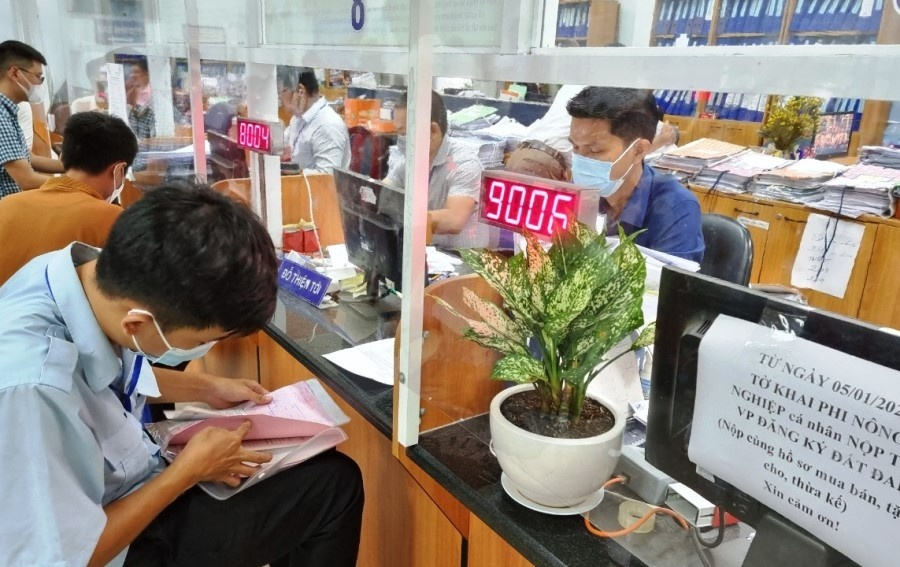
Tightening company formation regulations is crucial to curb tax evasion.
The Need for a More Robust Legal Framework
An economic expert weighed in on the situation, asserting that the intention behind establishing hundreds of companies with foreign names was evidently deceitful from the outset. This complicates the monitoring and management of these entities by the authorities. Moreover, the formation of companies solely for illegal invoice trading puts pressure on the tax department’s management of invoices and documents, ultimately impacting state budget revenues.
To address this issue, tax authorities in certain localities have disseminated warnings and provided identification criteria for so-called “ghost companies” that utilize illegal invoices.
The first red flag is the type of company, typically limited liability or joint-stock companies, or private enterprises. These entities often exploit general service provision or commercial trading as their line of business, which does not require registered capital or professional certification. Additionally, they tend to be located in virtual offices or even non-existent addresses. “Ghost companies” may also opt for short-term rentals in areas with lower educational attainment, and their operational lifespan is usually brief.
From a legal standpoint, Lawyer Mai Thanh Binh of Mai Thanh Binh Law Company, clarified that there is currently no precise limit on the number of companies an individual can establish. However, if one solely forms single-member limited liability companies, contributes capital to establish multi-member limited liability companies, or founds joint-stock companies, the number is essentially unlimited. In these scenarios, the company owner or member is only liable for the capital contributed or the proportion of shares held.
Lawyer Binh emphasized the need for more stringent regulations governing company formation in the future. He suggested imposing clear limits on the number of enterprises an individual can act as a legal representative for, enhancing documentation requirements during registration, and mandating proof of business address and owner information. Additionally, a minimum time interval between company formations by the same individual should be stipulated to curb the rampant proliferation of businesses witnessed today.
To effectively combat tax evasion, collaboration between multiple agencies, including those responsible for company formation permits, is imperative. A meticulous screening process during the registration phase is recommended, even if it causes slight delays, as it is far more beneficial than attempting to rectify the situation after the fact.
Proposed Planning for Adding 2 New Cities in Ho Chi Minh City
According to Architect Ngô Viết Nam Sơn, Ho Chi Minh City should consider planning two cities within the city in the south and north.
Three Economic Growth Scenarios for Ho Chi Minh City in Q1 2024
At the socio-economic meeting reviewing the results of January and setting the goals for February 2024, held this morning (1/2), the Ho Chi Minh City Institute for Research and Development has presented three economic growth scenarios for the first quarter of Ho Chi Minh City.












